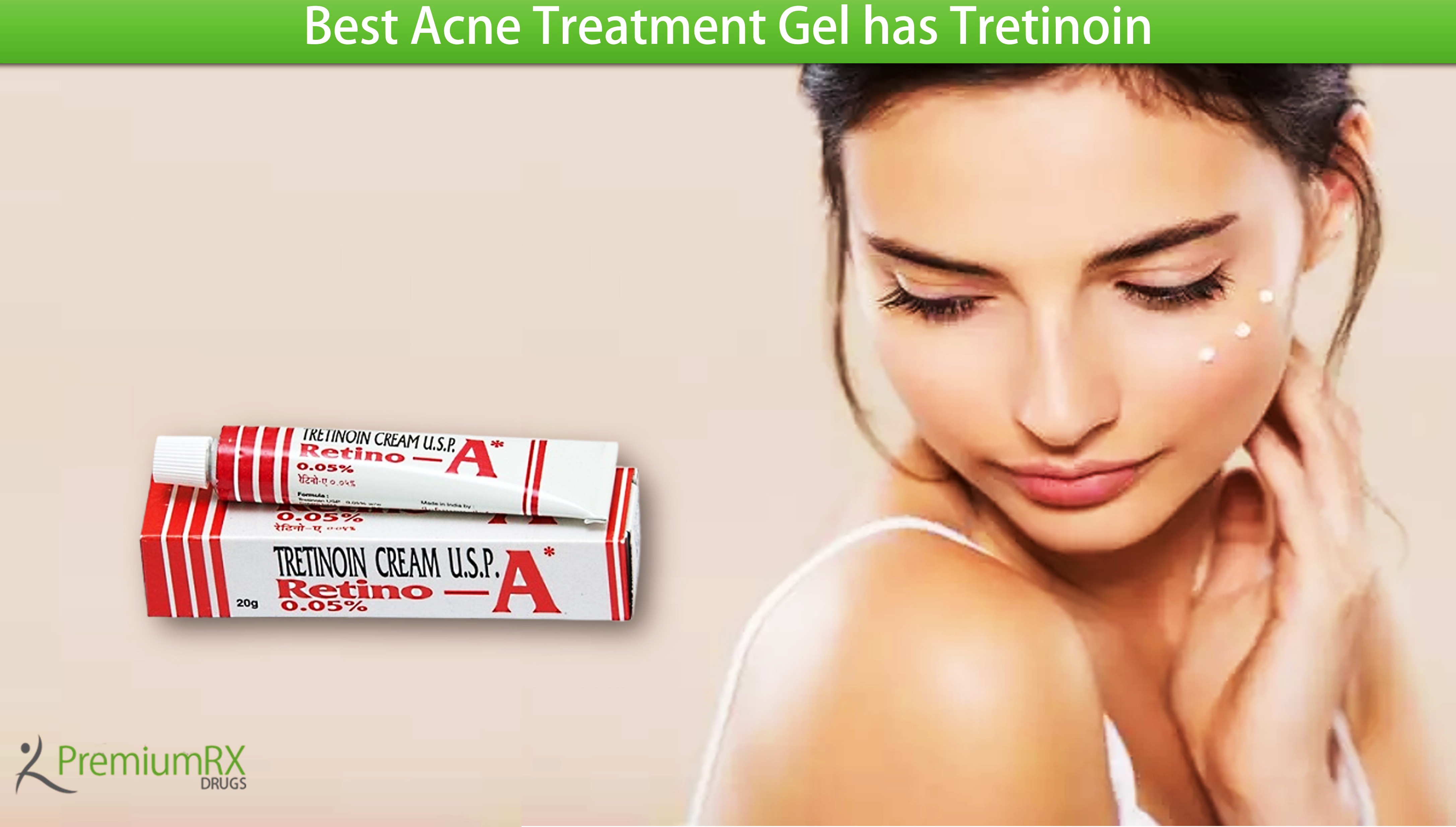Acne is a common skin problem when oil and skin cells block hair follicles. Sometimes bacteria can infect the hair follicles. This results in large, red, inflamed bumps called cystic acne. These can appear anywhere on the body. Several different topical prescription medicines are on the market for treating cystic acne. The most widely prescribed is a drug derived from vitamin A called Retin A. The generic version of Retin A is Tretinoin.
Tretinoin belongs to a class of medications called retinoids, derived from vitamin A. It can make skin cells grow and function more effectively. Tretinoin is one of the strongest and most effective topical retinoids used to treat skin ageing.
What does Retin A treat?
Retin A is effective in treating acne and its complications.
Cystic acne – Tretinoin cream is often used to treat cystic acne, resulting in a boil-like infection on the skin. Cystic acne usually goes deep into the skin, which causes permanent acne scars when they heal.
Some skin care experts recommend using Tretinoin to treat acne scars. While Tretinoin is not considered effective as a treatment for all acne scars, studies show that it does help to make some types of acne scars less visible. If you have hyperpigmented scars that appear darker in colour compared to the surrounding skin, using Retin A gel might help to make them lighter and less noticeable. Tretinoin can also smoothen your skin’s texture, making rough acne scars less visible.
Mostly, a ret gel is effective in treating mild to moderate acne scarring. Moreover, it is always best to talk to your dermatologist if you are worried about acne scarring. Based on the type and severity of acne scars, your dermatologist will be able to prescribe a safe, effective treatment to enhance the appearance of your skin.
How to use Tretinoin?
A Ret gel contains the active ingredient Tretinoin, which works by opening the clogged follicles, which bring to the formation of cystic acne. In treatment, a tretinoin formulation is usually prescribed together with antibiotics. As the retinoid opens clogged follicles, the antibiotics begin their action and eliminate bacteria that lead to acne breakouts.
A Ret gel is usually applied in a thin layer on the skin that is affected by acne once a day at bedtime for as long as the acne breakout lasts. Before using a tretinoin formulation, wash your face with a mild soap/cleanser and gently pat it dry. Wait for at least 20 to 30 minutes before applying the topical medication.
When using A Ret gel, be careful not to get into your eyes, nostrils, ears, and mouth. You can use cosmetics, but wash your face before applying the medication.
What to expect from Retin A?
The best acne treatment is Tretinoin, which works deep inside your skin and takes time. You cannot make this medicine any faster by applying more than one dose daily, but applying excessively may irritate your skin; therefore, be patient. There be some discomfort or peeling, especially during the initial days of the treatment. However, these reactions do not happen to everyone. If they do, it is just that your skin is adjusting to Retin A, which usually resolves within 2 to 4 weeks. These reactions can usually be minimized by carefully following the instructions. If the effects become excessively troublesome, please consult your doctor.
By 3 to 6 weeks, some patients notice the appearance of new blemishes. At this stage, it is important to continue using the retinoid formulation. If the topical medication benefits you, you should notice a continued improvement in your appearance after 6 to 12 weeks of therapy. Do not lose hope if you see no immediate improvement. Do not discontinue therapy at the first signs of improvement. Even when your acne is under control, you should continue applying Retin A regularly until your doctor instructs otherwise.
What are the side effects?
Some common side effects are associated with using A ret gel. They usually disappear after you discontinue treatment. Common side effects include:
- Burning or stinging sensation, which may be severe at times
- Redness of the skin, which may be severe
- Unexpected lightening of the affected skin area
- Skin that easily sunburned
- Unusually warm skin
However, very few people experience darkening of skin treated with A ret gel. Furthermore, researchers have found that exposure to sunlight after applying a retinoid formulation may give you sunburn more easily, so you should avoid direct sunlight.
Takeaway
With a wide range of acne treatments, it doesn’t seem easy to find the right one for you and your skin. While consulting a dermatologist is the only way to be assured of what you are using. Increasing the skin cell turnover, tretinoin cream/gel helps the newer cells form and shed the older ones.
Marie
Latest posts by Marie (see all)
- Revize Micro Gel 0.025% | Uses, Price, Side effects - April 9, 2025
- What is Evalon Cream: How to Apply, Benefit, who Can Use - April 4, 2025
- Understanding Avanair 200 mg: A Comprehensive Guide - April 4, 2025




